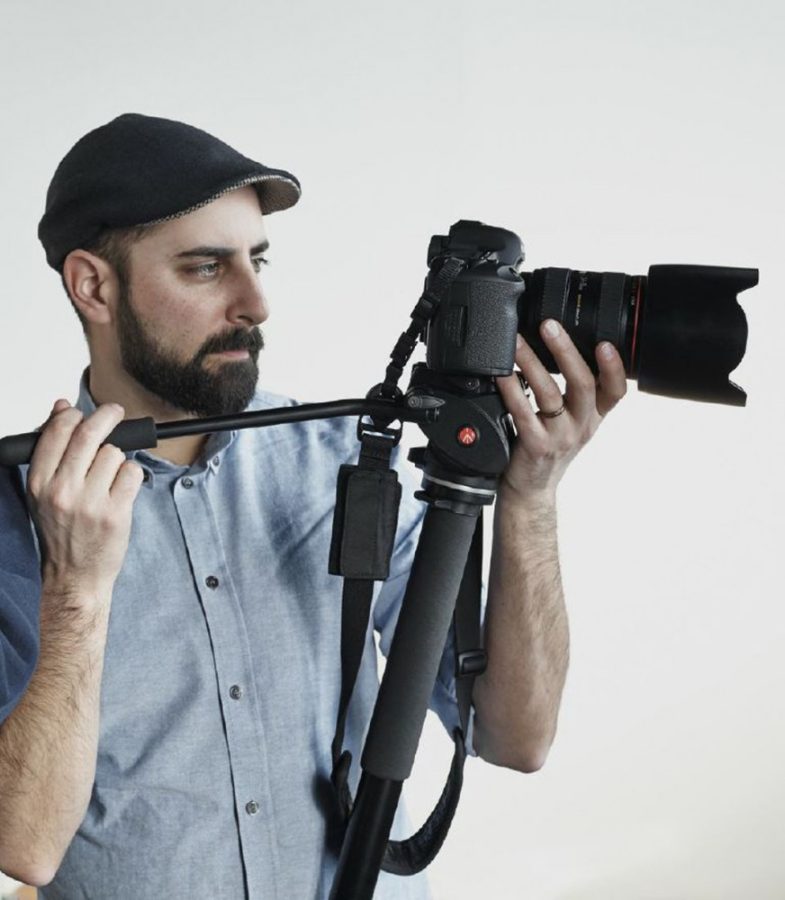Aaron Wickenden, a UA alumni from the class of 2000, is returning to Tucson for the showing of his documentary feature “Almost There” this Friday at 6 p.m. at The Screening Room. After the show, he will also be hosting a Q&A session for audience members. Wickenden, a documentary editor, co-directed this film about an elderly artist and sat down with the Daily Wildcat to chat about himself, his work and his journey.
When did you first get involved in film?
When I was in high school in Flagstaff, NAU had a television show that they would broadcast out on public access television, and it was for their filmmaking 101 production class. I started watching that while I was in high school, and I got really sucked into the movies that they were showing in that class, like “Citizen Kane” or some of the early Stanley Kubrick movies. That piqued my interest in film and made me pursue the program ultimately at the UA.
What is “Almost There,” and where did the idea for the film come from?
Back in 2006, my friend and I were at the regional festival in Indiana called “Pierogi Fest.” We brought our camera and were all excited to see this gigantic piece of food, and while we were walking along the boardwalk, we came across this incredible artist named Peter Anton that was doing pastel portraits of children at the time.
He was set up at an old rickety table and he had a bag with him, and inside the bag were scrapbooks filled with vernacular photography and artwork and drawings, and they were covered in glitter and kind of chewed up and fascinating. We gave him our address and he started writing us postcards during the holidays inviting us over to see the rest of the books.
We went to his place and saw the rest of the scrapbooks — there were 12 in total — and we were amazed. We thought this guy should have a show of his art, so we started filming the process of collaborating with him to put on this … show for Peter. He was 80 years old, so this was going to be the big triumph celebration of his work, and the film goes on to document how we collaborated on the show with him only to have this sudden interest in his life and his work generate some questions about his past in a pretty dramatic way.
What is the main message that you want the audience to take away from “Almost There”?
The subject of our film, his main purpose for wanting to make the film, is that he thought his story was one of perseverance and how even when a person struggles through physical disabilities and through poverty like he has, his story can show that you can triumph despite all these obstacles. Normally, you don’t see stories like this about elderly characters like Peter, but I think people will get a lot out of that type of story.
What’s your favorite thing about your job?
My favorite thing is the collaborative aspect of filmmaking and that with documentary editing in particular. I’m working with the director and the producer in a creative way to write the film. Usually the films that I work on, the filmmakers have been working on it for years with deep passion. They’ve recorded hundreds of hours of footage and I’m encountering them at the point where they’re finally ready to start carving that material and creating the story in the edits, and the edit could go millions of ways.
The way in which an editor shapes the tone and the style and the pace and the energy of the film, all of those creative challenges are extremely satisfying to me. As I’ve gotten to be a more proficient editor, I feel like I’ve gained the ability to take content and shift it in a myriad of ways to create the kind of impact that I’m looking for.
What’s the most difficult?
What I mentioned before is the most creatively satisfying aspect, but it’s also one of the most difficult. Being able to take that footage and shape it into something that makes sense for an audience and is compelling and cinematic is incredibly difficult.
What advice would you give to current film students or college students in general?
Internships. I got extremely lucky during the time I was at U of A — interning for Richard Avedon — and when I graduated from school, I still pursued a variety of internships. Each one was tremendously valuable in helping me figure out the direction of my career path, and all of them lead to me figuring out that I wanted to be a documentary filmmaker.
You want to hone in and figure out what you love to do. A person can tell the difference between when they’re really excited about something and they’re fired up and passionate about a job or a career path and when they feel like they’re doing something because they think they should be doing it.
_______________
Follow Victoria Pereira on Twitter.









